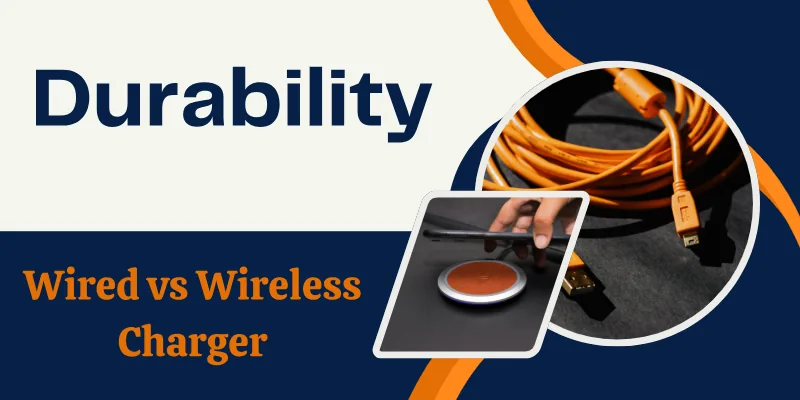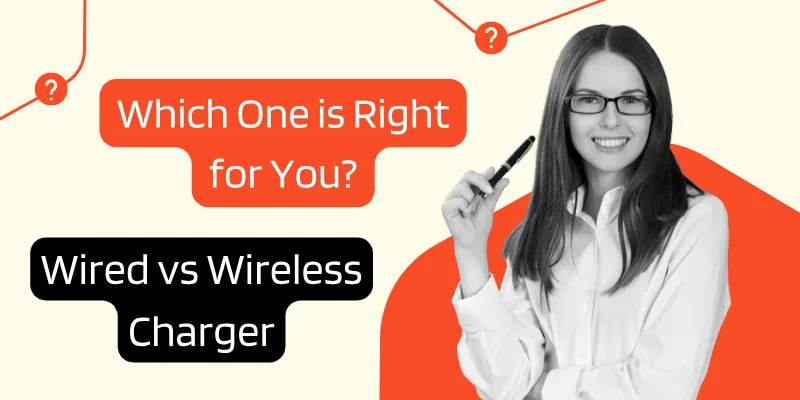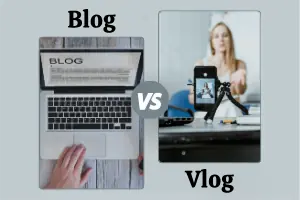Key Comparison Between Wired and Wireless Charger
Published: 2 Jan 2025
Charging technology has come a long way, offering multiple ways to keep our devices powered up. Two popular methods are wired and wireless charging, each with its own benefits and drawbacks. While wired charging has been a reliable option for years, wireless charging introduces convenience and a clutter-free experience.

And when it comes to wired connections, the type of connector also matters—my article on USB-C vs Lightning explains how these two popular standards compare. But which charging method is better for you?
In this article, we’ll explore the key differences between wired and wireless charger to help you make an informed decision based on your needs and lifestyle.
Quick Comparison Table: Wired vs Wireless Charger
Here’s a quick comparison table of wired vs wireless charger:
| Feature | Wired Charger | Wireless Charger |
| Charging Speed | Faster, especially with fast-charging support | Slower compared to wired charging |
| Convenience | Requires cables and ports | Cable-free, easier to use |
| Portability | Highly portable with lightweight cables | Less portable, requires a charging pad |
| Cost | More affordable | Higher initial investment |
| Device Compatibility | Compatible with most devices | Limited to devices with wireless charging support |
| Setup | Simple: plug in and charge | Requires precise alignment on a charging pad |
| Durability | Cables and ports can wear out over time | Reduced wear and tear on device ports |
| Safety | Secure and controlled charging | Generally safe but can overheat if misaligned |
| Power Efficiency | More efficient, less energy loss | Less efficient, energy loss during transfer |
This table highlights the core differences to help you decide which charging method is better for your needs.
Detailed Differences Between Wired and Wireless Charger
These detailed differences highlight the strengths and limitations of each charging method. Your choice should depend on your specific needs, like speed, convenience, or compatibility.
Charging Speed
Wired Charger: Wired charger is known for its faster speed, especially with advancements like fast charging (e.g., Quick Charge or USB-C Power Delivery). With direct electrical transfer through cables, it minimizes power loss, making it ideal for users who need a quick power boost.

Wireless Charger: Wireless charger tends to be slower because it relies on electromagnetic induction. Some modern wireless chargers have improved their speeds, but they still lag behind wired methods. This makes wireless charging better suited for casual charging scenarios like overnight charging.
Convenience
Wired Charger: Using wired chargers can be cumbersome due to tangled cables and the need to locate a power outlet. You must also ensure the correct cable for your device.
Wireless Charger: Wireless charger provides the convenience of simply placing your device on a charging pad. No more dealing with tangled cables! However, it requires the device to remain stationary on the pad, which may not always be practical.
Portability
Wired Charger: Wired chargers are compact and lightweight, making them ideal for travel. You only need a cable and a small adapter, which can easily fit in your bag or pocket.
Wireless Charger: Wireless chargers are bulkier because they include the charging pad, which takes up more space. They are less convenient to carry around, especially for frequent travelers.
Cost
Wired Charger: Wired charger setups are generally more affordable. Cables and adapters are widely available and cost significantly less than wireless charging pads.

Wireless Charger: Wireless chargers have a higher upfront cost. Additionally, devices without built-in wireless charging capability may require additional accessories like wireless charging cases, further increasing the cost.
Device Compatibility
Wired Charger: Wired chargers are universally compatible with most devices as long as you have the correct cable (e.g., USB-C, Micro-USB, or Lightning). Older devices, which lack wireless capabilities, rely solely on wired charging.
Wireless Charger: Wireless chargers are compatible only with devices that support wireless charging standards like Qi. Compatibility issues may arise with certain brands or older devices without wireless capabilities.
Setup
Wired Charger: The setup is straightforward. Plug the cable into the device and adapter, and you’re good to go. This simplicity ensures a seamless experience.
Wireless Charger: Wireless charger requires precise alignment between the device and the charging pad. Misalignment can lead to slower charging or complete failure to charge. Some chargers even require cases to be removed.
Durability
Wired Charger: Frequent plugging and unplugging can cause wear and tear on the cable and the device’s charging port over time. This can lead to connection issues and may require replacements.

Wireless Charger: Wireless charger reduces physical wear on ports, as no cables are involved. This contributes to better longevity for devices that use this method exclusively.
Safety
Wired Charger: Wired chargers are generally safer, with controlled and stable power transfer. Overheating is less common if certified cables and adapters are used.
Wireless Charger: Wireless charger is also safe but may cause overheating if the device is misaligned. Advanced chargers often include safety features to mitigate these risks.
Power Efficiency
Wired Charger: Wired charger is more power-efficient because it transfers energy directly to the device with minimal energy loss. This makes it environmentally friendly and cost-effective for regular use.
Wireless Charger: Wireless charger has lower efficiency due to energy loss during the electromagnetic transfer process. It requires more energy to achieve the same charge, which can impact electricity usage over time.
Which One is Right for You?
Choosing between wired and wireless charger comes down to your personal needs, preferences, and lifestyle.

Ultimately, the “right” choice depends on what you value more—speed, convenience, cost, or compatibility. Take stock of your lifestyle and usage habits. For example, if you’re a tech-savvy professional with a preference for clutter-free setups, wireless charger might appeal to you. However, if you’re someone who values efficiency and cost-effectiveness, wired charger is the way to go.
Conclusion
Both wired and wireless charging have their own advantages. Wired charging is faster and more reliable, making it the best choice when you need a quick power boost. Wireless charging, on the other hand, gives you convenience and a cable-free setup, which many people love for everyday use.
The best option really depends on what matters most to you—speed or convenience. And if you’d like to learn more about how charging and data transfer speeds differ between USB versions, check out my other article on USB 3.0 vs USB 3.1.
FAQs about Wired vs Wireless Charger
Here are some of the most Frequently Asked Questions related to Wired vs Wireless Charger:
Wired charger uses a cable to transfer power directly to the device, while wireless charger uses electromagnetic fields to transfer power without physical connections.
No, wired charger is generally faster, especially with fast-charging technologies like USB-C Power Delivery or Quick Charge.
Yes, many modern devices support both methods, allowing you to switch between them based on your preference or situation.
Wireless charger is generally safe for batteries, but prolonged overheating due to misalignment on the pad can cause minor wear over time.
No, wireless chargers work only with devices that support wireless charging standards like Qi. Older devices often lack this feature.
Wired charger has minimal power loss during transfer, making it more efficient than wireless charger, which loses energy through electromagnetic transmission.
Wireless charger is more convenient for stationary setups like homes or offices, while wired charger is practical for on-the-go or quick power boosts.
Yes, wireless chargers typically have a higher upfront cost, and additional accessories may be needed for some devices to enable compatibility.
It’s difficult to use the phone while it’s on a wireless charging pad, whereas wired charger allows easier mobility during use.
Yes, but the case must be thin and free of metal components to avoid interfering with the charging process.

- Be Respectful
- Stay Relevant
- Stay Positive
- True Feedback
- Encourage Discussion
- Avoid Spamming
- No Fake News
- Don't Copy-Paste
- No Personal Attacks

- Be Respectful
- Stay Relevant
- Stay Positive
- True Feedback
- Encourage Discussion
- Avoid Spamming
- No Fake News
- Don't Copy-Paste
- No Personal Attacks





